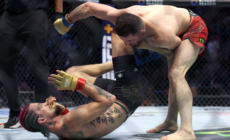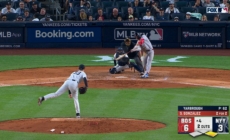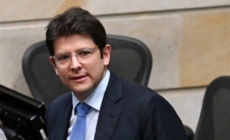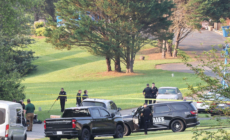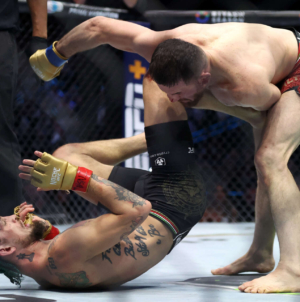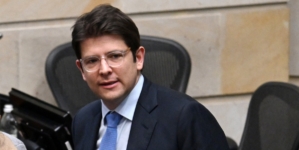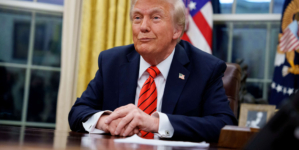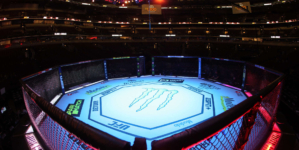-
DraftKings UFC Promo Code: Claim Bet $5, Win $300 Bonus For UFC 316 Card - 38 mins ago
-
Red Sox's Romy Gonzalez cranks two-run home run to extend lead over Yankees - 41 mins ago
-
Miguel Uribe, leader of Colombian right opposition, shot in Bogota - 53 mins ago
-
Trump’s Pardon Spree May Not Be Over Yet: What to Know - about 1 hour ago
-
LIV Golf Virginia: Anirban Lahiri charges to lead after stellar 64 in Round 2 - about 1 hour ago
-
Toys caught in the crosshairs of Trump’s tariffs - 2 hours ago
-
Who Are the Suspects Charged in North Carolina Deadly Mass Shooting? - 2 hours ago
-
Miley Cyrus stuns in sheer crystal dress at New York film festival - 2 hours ago
-
Sovereignty wins 2025 Belmont Stakes, third and final leg of Triple Crown - 2 hours ago
-
How to Watch UFC 316 Prelims: Live Stream Merab Dvalishvili vs Sean O’Malley 2 Undercard - 3 hours ago
Starbucks bars customers in South Korea from turning their orders into political statements
SEOUL, South Korea — Ordering coffee in South Korea? Not if your name is Lee Jae-myung.
Starbucks customers in the East Asian democracy have been barred from using the names of South Korea’s six presidential candidates in their orders until the election on June 3.
A spokesperson for Starbucks Korea told NBC News by phone Friday that the policy was introduced “in order to prevent inappropriate and abusive use of the names.”
In recent months, South Koreans have increasingly used Starbucks as a political platform — ordering drinks through the app under politicians’ names instead of their own, sometimes combined with calls to support or oppose them. Those entreaties are then repeated by baristas when they call out the orders for pickup in stores.
Businesses such as Starbucks are anxious to appear neutral given the tense political atmosphere in South Korea, where voters are choosing a successor to former President Yoon Suk Yeol after he was impeached over his botched martial law declaration late last year.
The two main candidates are Lee Jae-myung of the liberal opposition Democratic Party, who narrowly lost to Yoon in South Korea’s 2022 presidential election, and Kim Moon-soo from Yoon’s conservative People Power Party.
The other candidates whose names are not allowed in Starbucks orders are Lee Jun-seok, Kwon Young-kook, Hwang Kyo-ahn and Song Jin-ho.
While Lee Jae-myung is leading in polls, Kim is narrowing the gap and could pull even if he persuades Lee Jun-seok of the Reform Party to drop out of the race and throw Kim his support.
Customers interviewed by NBC News said they understood why Starbucks would introduce the policy, but many described it as an overreaction.
“Honestly, setting a nickname like that doesn’t seem like an easy or effective way to make a political statement,” Hyunwoo Park, 25, said.
“It’s just a nickname — I think people should have the freedom to choose their own,” Young-Eh Choi, 60, said. “It’s my right, so restricting it feels like too much.”
Yoon’s martial law declaration and subsequent impeachment trial have been deeply divisive in South Korea, increasing polarization between liberals who accused Yoon of abusing power and conservatives who embraced his baseless claims of election fraud and adopted slogans and symbols associated with President Donald Trump such as “Stop the Steal.”
Yoon supporters stormed a Seoul court in January after a judge extended his detention over the short-lived martial law order.
“The country feels very divided by age, gender and political affiliation,” Park said. “Personally, I hope we can move past these exhausting conflicts and come together as Koreans.”
Arim Shin reported from Seoul, Stella Kim reported from Los Angeles and Jennifer Jett reported from Hong Kong.
Source link
